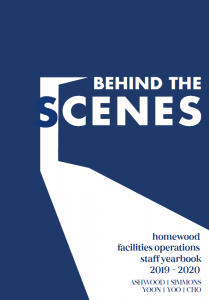 The Ferdinand Hamburger University Archives collects, preserves, and provides access to Hopkins history. Historically, we have prioritized relationships with key offices that carry out certain mission-critical functions: Office of the President, the Provost, the Registrar’s office, and so forth. As a result, the administration’s perspective has dominated the story of Hopkins. This is an important lens through which to view university history, and we are proud of our commitment to preserving these records. But what about other perspectives on university life? Who are these people, and what stories do they have to share?
The Ferdinand Hamburger University Archives collects, preserves, and provides access to Hopkins history. Historically, we have prioritized relationships with key offices that carry out certain mission-critical functions: Office of the President, the Provost, the Registrar’s office, and so forth. As a result, the administration’s perspective has dominated the story of Hopkins. This is an important lens through which to view university history, and we are proud of our commitment to preserving these records. But what about other perspectives on university life? Who are these people, and what stories do they have to share?
In response to this important and challenging question, we have made concrete efforts the last few years to diversify the voices in the Archives. Consequently, the Archives has made great strides in documenting the experience of students and faculty. However, the experience of staff, whose expertise and hard work keep our campuses operating, remains largely absent from the historical record, hidden from researchers of Johns Hopkins University life.
This is why we were excited to learn that Homewood Facilities Operations received a Diversity Innovation Grant in 2019 from the University’s Office of Diversity and Inclusion to create a staff yearbook for 2019-2020. The initiative to chronicle and honor the hard work of our facilities operations staff was led by Ray Cho, Director of Construction and Planning in the Krieger School of Arts and Sciences. We worked with Ray this summer to facilitate the deposit of a digital copy of the Homewood Facilities Staff Yearbook to the Archives. It is available for download in JScholarship, our institutional repository.
Advancing diversity, equity and inclusion through archival practice is a core value of the Archives team. We are proud to have carried out this value in a number of ways: our oral history program with first-generation college students, our outreach to student groups, digitization projects designed to maximize access to the history of historically marginalized groups, to name just a few examples. However, we are not complacent. We strive to do more to advance this important work. The Office of Diversity and Inclusion’s award to Homewood Facilities serves as both an exemplary illustration of diversity as well as a challenge to the University community to think broadly about how we should understand and celebrate diversity.
We are grateful to the Diversity Innovation Grant program for funding the creation of the yearbook and we are honored to preserve the result in the Archives. The University Archives looks forward to working with Ray Cho and his colleagues to receive future yearbooks documenting our facilities staff’s important contribution to university life.
